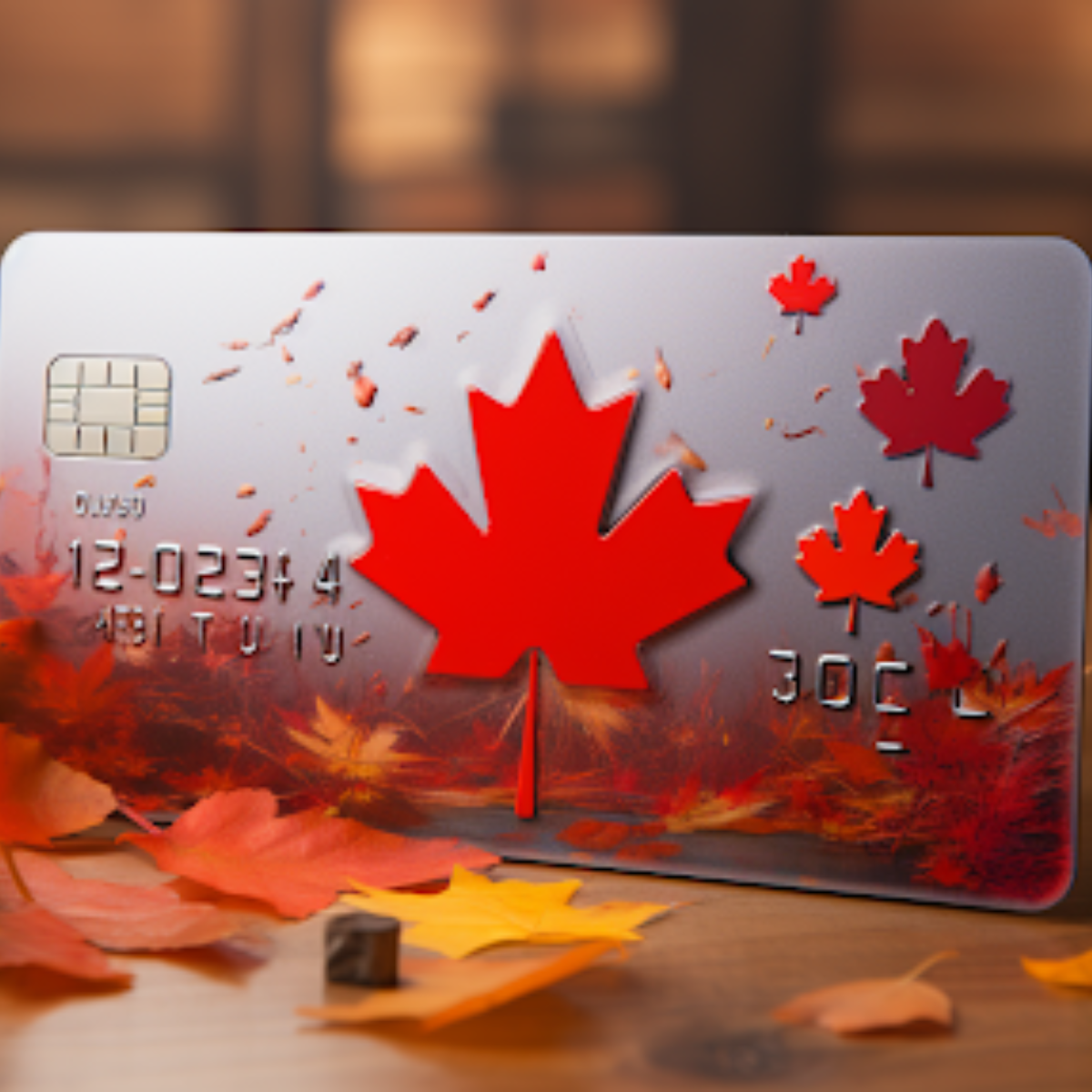
Credit Cards Loans Canada
Credit cards are one of the most used sources of Canada financial aid anywhere in the world because of the convenience and safety in making transactions.Canada Is Considered a Lot in this Regard
,What follows is the general background of worldwide credit cards showing the features, benefits, and considerations.
Types of Credit Cards
a. Standard Credit Cards: These are fancy-free cards that don't have any rewards.
b. Rewards Credit Cards: They provide points, miles, or cashback from purchases.
c. Travel Canada Credit Cards: Advantages include insurance on trips, access to airport lounges, no Canada foreign transaction fees.
Canada Business Credit Cards: Designed for business expenses with added features that include accounts tracking and employee cards
Canada Secured Credit Cards: This requires a collateral deposit and is aimed to build or bring back the score.
2. Eligibility Criteria
Credit Score: One of the major determinants in approval; best scores will often qualify you for the most generous terms.
Source of Income: Applicant should have a valid source of income
Debt-to-Canada Income Ratio: Good measure for lenders to verify if one can afford new debt
APR: Canada Interest rate that you are charged for carrying month-over-month balances
Annual Fees: Few Canada credit cards charge annual fees in exchange for their Canada services
Foreign Transaction Fees: Charges a consumer pays when making Canada purchases out of the country a card is issued.
Late Fees: Fees charged for failure to make a payment by the due date.
Some of the major advantages associated with credit cards that make them very popular in financial markets all over the world include:
1. Convenience
Easy Transactions: Fast and convenient in-Canada store and online transactions.
Wide Acceptance: Major credit cards are accepted at millions of locations around the globe.
2. Building Credit
Improved Canada Credit Score: This sense of responsibility in using credit cards will definitely build up and improve your credit score.
Credit History: The credit history you establish will also be relevant for future loans and Canada financial products.
3. Rewards and Benefits
Cashback: Get back a percentage of your spending as Canada cash rewards.
Points and Miles: Points for travel, merchandise, or other rewards.
Sign-up Bonuses: Many cards offer lucrative sign-up bonuses to first-time users.

4. Security
Fraud Protection: Most Canada credit cards have provisions for zero liability in case of unauthorized transactions.
Purchase Protection: Items bought are covered in case they get damaged or stolen within a certain duration.
Dispute Resolution: Charges on Canada credit cards and issues relating to billing errors are relatively easy to dispute as compared to other forms of Canada payment.
5. Emergency Funds
Access to Funds: Credit cards do allow access to funds during Canada emergency situations where cash may not be available.
Canada Cash Advances: A cash withdrawal facility is provided; though on higher interest rates and charges.
6. Financial Flexibility
Deferred Payment: One can defer the Canada payment till the end of a billing cycle.
Installment Plans: Many cards allow one to establish an installment plan for big purchase Canada transactions.
7. Travel Benefits
Travel Insurance: Most of the cards entail travel Canada insurance that provides coverage against cancellations of trips, for lost luggage, and for rental cars.
No Foreign Transaction Fees: Some Cards do not charge fees on foreign transactions.
Airport Lounge Access: Premium Canada cards provide access to airport lounges.
8. Expense Tracking and Management
Detailed Statements: This provides detailed monthly statements, which helps in tracing expenses and, hence, managing budgets.
Expense Categorization: Most Canada cards offer tools that categorize and hence analyze spending habits.
9. Other Extras
Extended Warranties: Most credit cards extend manufacturers' warranties on items purchased with them.
Price Protection: If something you have purchased goes down in price within a certain period, you will be refunded.
Concierge Services: Luxury cards really do provide concierge Canada services in travel booking, eating reservations, and event tickets, among others.
)
10. Offers and Discounts
Partner Discounts: Get discounts off deals from over 1,000 merchants Canada nationwide, spanning groceries, dining, shopping, and travel.
Exclusive Access: Be the first to obtain a limited number of Canada VIP-only events, advance reservation and ticket presale to popular concerts, and access to exclusive deals and discounts.
11. Online Shopping
Convenience: Makes online payments and subscription easier
Security: Additional enhanced security features like virtual Canada card numbers and encryption
12. Budget Management Tools
Spending Alerts: Get notifications for large transactions or when you are nearing the credit limit set by you.
Mobile Apps: Most issuers have their apps where you can easily check and monitor your account right in real-time.
13. Grace Period
Interest-Free Period: No Canada interest is levied on items bought if you pay the full amount – minus the minimum Canada payment – on or before the due date.
14. Special USA Financing Options
0% Introductory APR: Very few cards charge no interest on purchases or balance transfer from one account to another for some time.
Though there are many advantages associated with credit cards, there are several disadvantages, too. Some of the main drawbacks to using Credit cards are given below
1. High-Interest Rates
a. APR: The credit cards generally amount to a high Canada interest rate especially when one does not pay the full amount every month.
b. Compound Interest: These Canada interests are compounded daily and thus increase very fast to become a huge amount to pay.
2. Debt Build Up
a. Easy to Overspend: A credit card is easy to use, and this very factor is enough to bring people into overspending and piling up debt.
Minimum Payments: Paying only the minimum Canada payment involves a longer time to be debt-free and is more expensive.
3. Fees and Penalties
Annual Fees: Some credit cards charge an annual fee for their Canada offered services and benefits.
Late Payment Fees: It charges late fees in case of missing the payment dates, and it even compounds the interest rate.
Foreign Transaction Fees: It charges fees for transactions outside the home country of the card.
4. Effect on the Credit Score
Negative Effect by Mismanagement: Late fees, high use of credit, and defaults in payments may enormously damage the credit score.
Hard Inquiries: Applying for multiple credit cards under an unrealistically short period will also negatively affect your credit score.
5. Complicated Terms and Conditions
Fine Print: The fine print of the credit card agreements have often used language that is thick and funky.
Interest Rates: The interest rates may increase based on the prime rate or at the discretion of the card issuer by the behavior of the cardholder.
6. Potential Fraud
Identity Theft: Credit card information may be used to make forged transactions.
Scams: Canada Credit cardholders can also be scammed through phishing and various other means.
Credit card Canada policies are all the rules and regulations that credit card issuers and regulatory bodies have put in place to ensure the regulation of the issuance, use, and maintenance of the credit cards. The Canada policies also see to it that there is fairness in practice, consumer protection, and integrity in the Canada financial system. Below are some of the critical aspects of the Canada credit card policies:
1. Application and Issuance USA Policies:
Eligibility Criteria: These issuers come up with some requirements that should be met prior to getting a card; the requirements include minimum income, credit score and age.
Credit Checks: A credit report is drawn on to evaluate the creditworthiness.
Documentation: Proof of identity, income and residence may be required by the Canada applicants.

2. Credit Limits
Initial Limit: Is determined according to the creditworthiness and income of the Canada applicant.
Credit Limit Increases: These are sometimes raised over time by issuers, based on the history of Canada payment and credit score.
Over-Limit Policies: When a cardholder goes over-limit, the issuer may charge fees or even put a restriction on it.
3. USA Interest Rates and Fees
APR: The interest to be charged on outstanding balances.
Canada Variable vs. Canada Fixed Rates: Some with variable rates, usually attached to an index; others have fixed rates.
Fees: Annual fees, late payment, foreign transaction, balance transfer, cash advance fees.
4. Payment USA Policies
Minimum Payment: The minimum amount of Canada money that must be paid to steer clear of the hefty late Canada payment charges in a month.
Grace Period: The time when no interest is charged between the last day of the billing cycle and payment due date, provided that the account balance is paid in full.
Payment Options: How payments are to be made, either online, mail, or in Canada person.
The credit card policies guarantee fair usage, protection of the consumers, and the Canada financial balance of the credit system; they are the most significant and very vital guidelines and rules put in place by credit card issuers and regulatory authorities. The overview of typical credit card Canada policies includes:
1. Application and Issuance Policies
Eligibility Criteria: There are requirements to be eligible, including a minimum age, usually 18 years; a minimum threshold level of income; and a satisfactory credit score.
Credit Worthiness Check: The issuers check whether the applicant is credit-worthy.
Documentations: Proof of Identity, Income, and Residence may be required during application.
2. Credit Limits
Initial Credit Limit: Is determined by the Canada Applicant's Credit History, Income, and Other Canada Financial Factors.
Credit Limit Increase: Issuers will, once in a while review an account for credit limit increase, provided he has paid promptly and his credit usage is very good.
Over-Limit Fees: Some issuers apply fees if Canada cardholders exceed their credit limit; however, this trend is not that common these days.
3. United States Interest Rates and Fees
Annual Percentage Rate: It is charged against unpaid balances. This can either be at a fixed or variable rate.
Penalty APR: It is the interest charged on the outstanding amount after the due Canada payment, or crossing the credit limit.
Fees: The account includes items like annual fees, late payment, balance transfer, cash advance, and foreign Canada transaction fees
4. Payment Policies
Minimum Payment: The amount which is required to pay every month to avert the Canada cardholder from late fees and penalty APRs
Due Date : The date by which payment must be received to avoid late fees.
Interests free period: Canada Generally a period of 21-25 days. If paid in full during this period, then no interest will be levied.
Posted on 2024/12/18 04:37 PM
